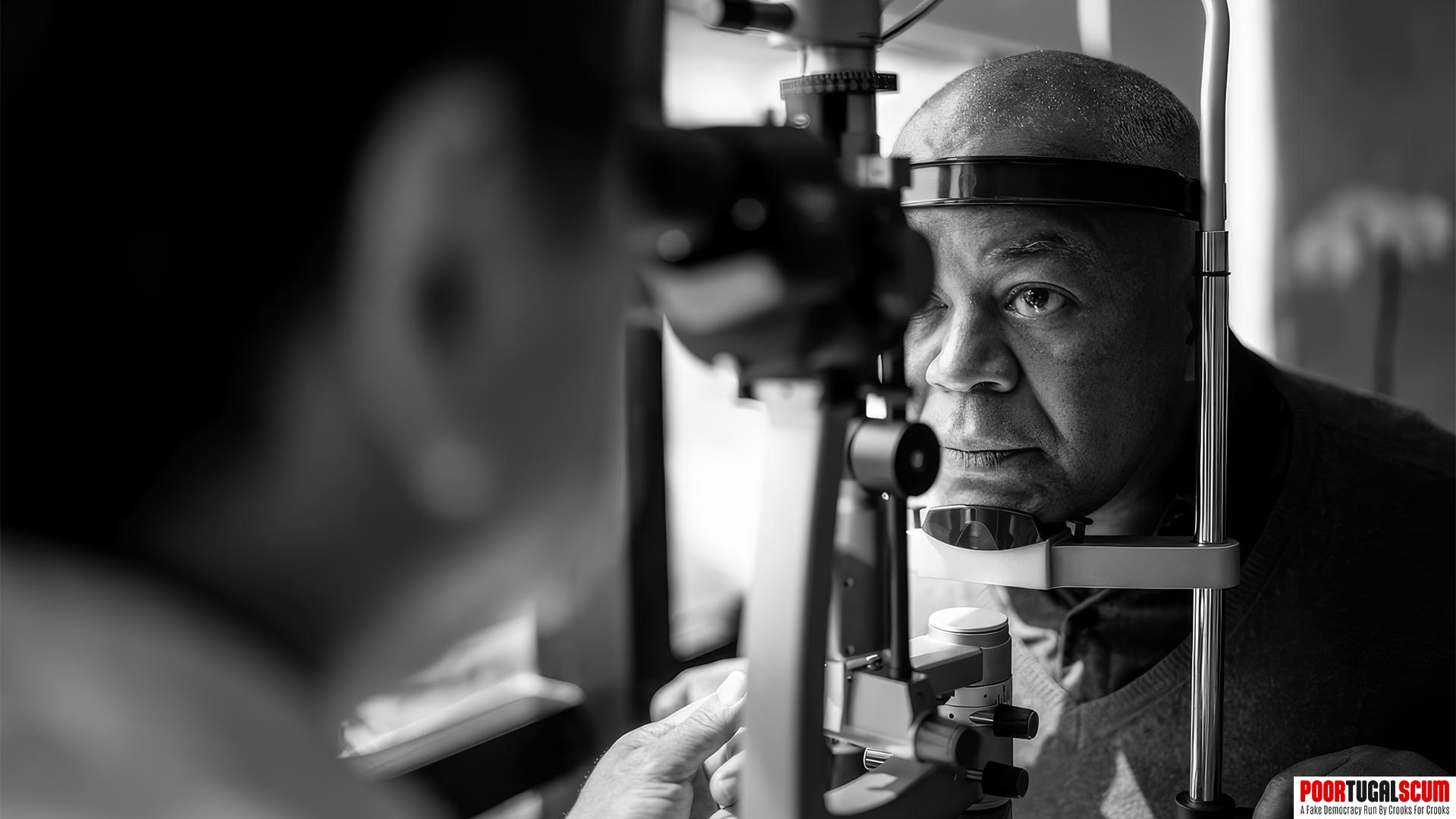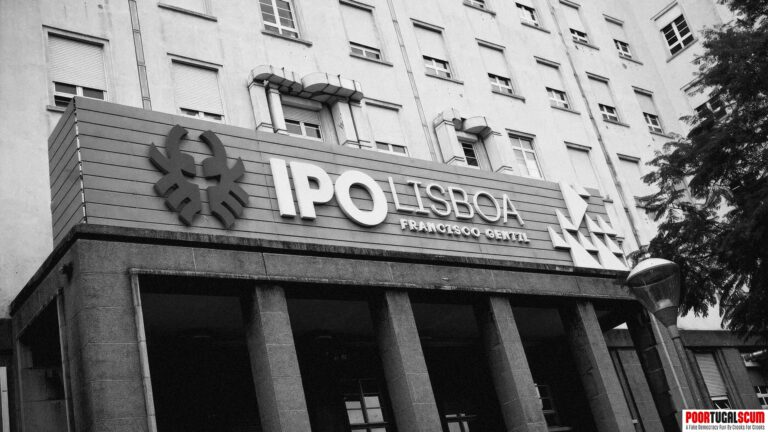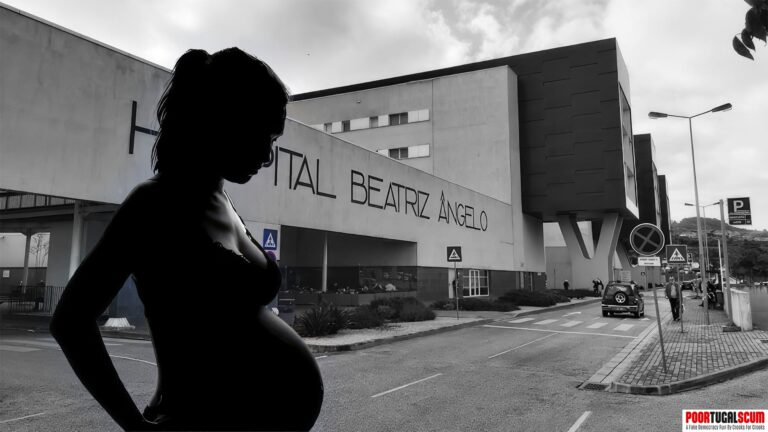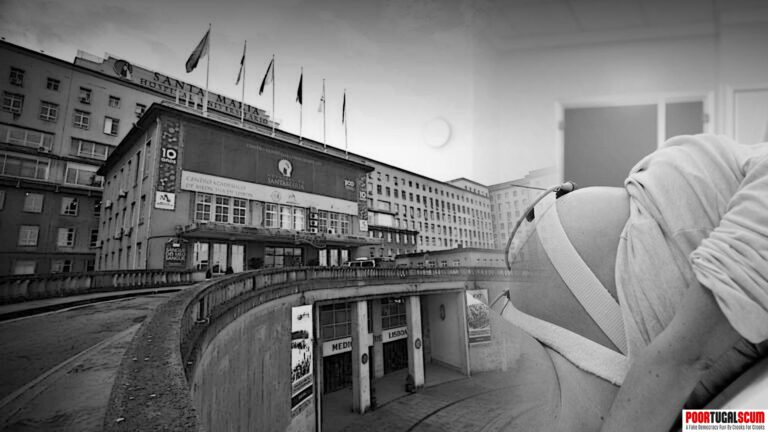It can be said that a Spanish doctor is worth 285 times more than a Portuguese doctor: Spanish doctor – 234 surgeries in six days | Portuguese doctor – 0.82 surgeries in six days.
It seems that even the Portuguese Medical Association was outraged by this Spanish super doctor, of course they are, as he himself says: “I understand their concern and I know why there are such long waiting lists in Portugal. It’s just that they charge around two thousand euros for every private operation”. Well, the Portuguese pimps don’t want to stop impoverishing Portuguese patients by creating artificially high waiting lists in public hospitals so they can make big money in their private practices. Furthermore, Portuguese doctors still use general anesthesia from the Stone Age, while Spanish doctors work in the 21st century, applying just a few drops of anesthetic eye drops to perform the surgery.
We don’t know what the real extent of this is, because in Portugal we never know anything, but most likely a very considerable percentage of the waiting lists in Portugal are caused by these corruption schemes between public/state hospitals and private ones.
Portugal is so corrupt and crooked that even the state hospitals are not spared.
Portugal is definitely not a good place to live, quite the opposite.
The following article is a translation (mostly MT). You can find the link to the original website at the end of it.
In six days, a Spanish ophthalmologist performed 234 surgeries on patients with cataracts at the Nossa Senhora do Rosário Hospital in Barreiro, a procedure that “outraged” the Medical Association.
The prices charged are highly competitive, and this was the solution found by the hospital to combat the waiting list. The oldest patient had been waiting since January 2007, having exceeded the waiting period for surgery. Last year there were 616 new surgical proposals on hold at that health unit. The service’s seven specialists performed only 359 operations in 2007 (around 50 per doctor in a year).
At the end of last year, the waiting list was 384, and has since been reduced to 50 with the intervention of the Spanish doctor.
His visit to Barreiro during the month of March – where he guarantees to return in the next two years, although the hospital does not confirm – was the second experience in Portugal for ophthalmologist José Antonio Lillo Bravo, owner of two clinics in Spanish Extremadura – in Dom Benito (Badajoz ) and Merida. Between 2000 and 2003 he had already carried out 1500 operations at the Hospital de Santa Luzia, in Elvas, regardless of the “criticism” he says he received from his Portuguese colleagues.
“I understand their concern and I know why there are such long waiting lists in Portugal. For each private operation they charge around two thousand euros”,
the Spanish ophthalmologist, registered with the Portuguese Medical Association, tells DN that he charged 900 euros for each operation carried out in Barreiro.
“I was curious to know what the average number of monthly surgeries at the hospital was and I noticed that in January 28 interventions were carried out, with 21 of the patients being operated on with general anesthesia”, he said, maintaining that his technique no longer has anything to do with this method.
The ophthalmologist, who is responsible for monitoring the post-operative period, explained that he uses local anesthesia, carried out with a few drops of anesthetic eye drops, and the surgery is carried out using phacoemulsification. An advanced procedure that consists of removing the defective lens from inside the eye, through a micro-orifice of just 2.5 millimeters, as explained by José Bravo, a specialist since 1992 at the Autonomous University of Madrid. “There is no need for sutures. Then an intraocular lens is implanted, which returns the patient’s vision to normal. After five days the person goes home“, he revealed, guaranteeing that Portugal is experiencing “a major delay” In this regard, extracapsular cataract extraction – called EECC – is still widely used, in which the patient needs at least 15 days to regain vision.
The 234 surgeries carried out in Barreiro, for a total of 210 thousand euros, were the limit possible without the need to open an international public tender,
and the doctor had to move his team as well as the microscope and phacoemulsifier. The hospital only provided one nurse to provide support.
The hospital administration guarantees it will be satisfied with the results obtained in this project, not knowing that the idea of using José Bravo was put forward by a hospital representative who met the doctor during the operations carried out in Elvas. The administrators warn that the hospital’s director of Ophthalmology himself gave “favorable information”, justifying that the decision to hire Spanish clinical services aims to “satisfy the needs of the population”, at a time when “the waiting list for ophthalmological surgery remains persistent over recent times and which has been a reason for complaints from some users”.









